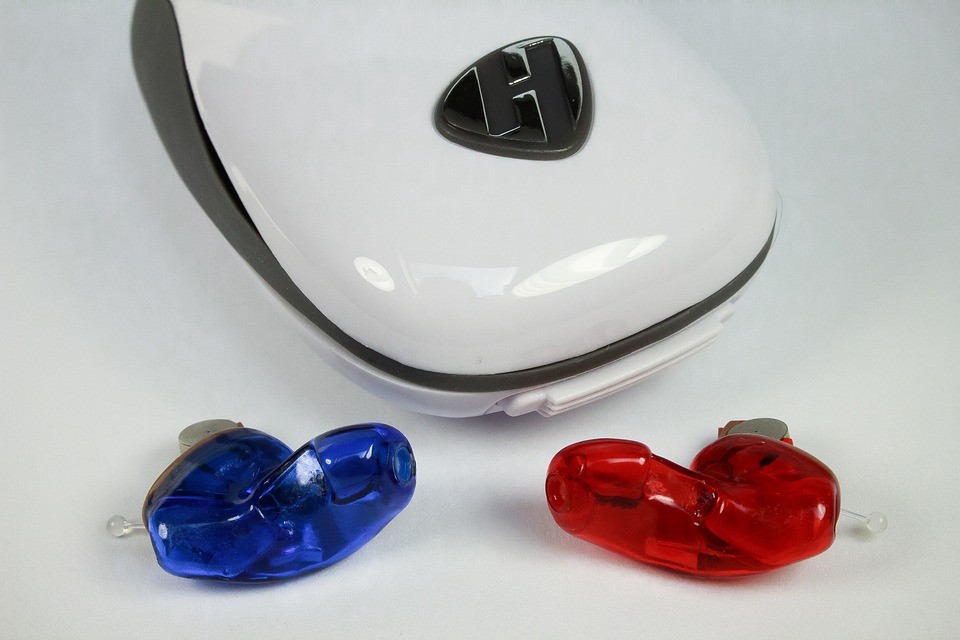Humans Have Five Senses For A Reason
One of the reasons there is a high connection between mental health issues and allergic reactions is because such issues put a person in a position where they can’t lead the life they know they should in the way they’d like. Suddenly there’s a psychological consideration. People can become depressed, stressed, or angry owing to complications from allergies.
If a person loves cats, then becomes allergic to them—which can happen in later life—they can begin to hate the little four-legged balls of fur. Sometimes when something keeps someone from an outcome they like, they can become embittered. If this sort of thing happens with allergies, think how much more difficult something like hearing loss can be.
It’s been said that a loss of hearing impacts an individual worse than the loss of sight. This can be hard to wrap your head around, but imagine never hearing a song—except in a metaphysical sense—again. Imagine endless silence. While there is an associated peace there, such a prospect seems horrifying to most.
Human beings have five senses for a reason. Seeing, hearing, smelling, touching, and tasting are core to the human condition. Lose a primary sense, and you’ll definitely be affected mentally—but there’s hope. Gradual hearing loss can be augmented technologically—this is one way to cope. Additionally, there are therapeutic and psychological strategies.
Exponential Possibilities From Technological Solutions
Technology exponentially builds on itself following what is known as “Moore’s Law” segues. Essentially, the ability of computational hardware at the highest levels doubles upon itself about every eighteen months. That’s at the highest levels; it takes a few years for such top-tier breakthroughs to trickle down to common folk.
Still, in terms of medical breakthroughs, there are some exceptionally considerable options out there, like those available from Northeast Colorado Springs audiologists. In today’s world, medical and computational technology have combined to provide therapeutic options like never before.
There are actually technologies available now which can bring hearing to those who have never been able to hear. In 2019, Elon Musk predicted a microchip for the brain so easy to install, that by 2020 there would be malls where such installations took place. Well, we’re in that year now, and as yet, whether Musk was accurate remains to be seen.
The takeaway to his statement, though, is that computational technology and medical breakthroughs have come to a hand-in-glove relationship wherein it’s possible to treat congenital conditions from birth, and successfully augment issues that develop with physical maturity.
A Natural Component Of Reality
Hearing loss is natural in old age, and hearing aids have been around for decades, but technological miniaturization makes it so such solutions actually work. Yes, they worked in the past, but today they work better—and more affordable—than ever. Because tech is still moving forward, this situation will only continue to become better.

Nanotechnology has also been around for decades, and there will likely come an event horizon where miniaturized computers that are invisible without a microscope have processing capability similar to the device on which you’re reading this now. Google just launched its first quantum computer in the fourth quarter of 2019. Such advances are near.
Even so, technology isn’t cheap. It’s not widely available to everybody. There are things you can do to help reduce the impact of hearing loss, and some of those things involve training your mind to contend with the issue.
Aging And Hearing Loss Are Natural But Can Be Managed
As we age, natural entropic forces gradually take over our lives. We come into the world naked and helpless, and we leave the same way—if we do well. Many of us will die well before we should be owing to mistakes or uncontrollable circumstances. Still, eat right, exercise regularly, and keep your soul healthy. Doing so will ideally help you live well into your nineties.
Some people even live until they’ve passed the hundred-year mark. However, our bodies start to break down around our mid-thirties, even if we do well at maintaining them. Knees start to creak, joints become sticky and painful, fatigue comes quicker, substance abuse becomes more damaging. Very few people drink as they did in their twenties when they hit fifty.
Even if you do things right, your hearing will slowly begin to go. At first, it won’t be too noticeable—you’ll have to get clarification on some things and wonder why everyone around you talks so quietly. But you’ll realize what you’re contending within time, and if you let it get to you, it can act like a subconscious bad mood controlling your every move.
Start managing your hearing now. Avoid loud noises, and don’t use Q-tips too much—these take away necessary moisture from the ears. Knowing hearing will wane in time and train your ears to excellence by keeping things quiet so your body has to focus on hearing at the organic level. When all else fails, look into technology options—they’re better than ever.
